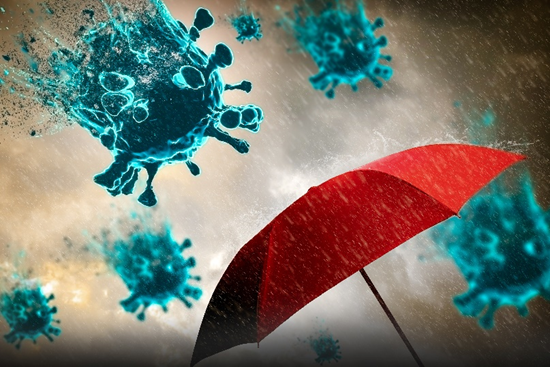Stay Alert: Waterborne Diseases During the Rainy Season
The rainy season brings relief from heat but also increases waterborne disease risks. Flooding and poor sanitation create breeding grounds for pathogens. This article highlights common waterborne diseases, prevention tips, and practical steps to stay safe. Stay informed to protect yourself and your family in Vietnam’s wet season.

Common Waterborne Diseases
1. Cholera
Cholera, caused by Vibrio cholerae bacteria, spreads through contaminated water. Symptoms include severe diarrhea, vomiting, and dehydration. Without treatment, it can be fatal within hours. Contaminated food or water sources are common culprits. Boiling water and maintaining hygiene are key to prevention.
2. Typhoid Fever
Typhoid fever, caused by Salmonella typhi, spreads via contaminated food or water. Symptoms include high fever, weakness, and abdominal pain. It’s common in areas with poor sanitation. Vaccination and safe water practices reduce risks. Early antibiotic treatment is crucial for recovery.
3. Hepatitis A
Hepatitis A is a viral infection affecting the liver. It spreads through contaminated water or food. Symptoms include jaundice, fatigue, and nausea. The virus thrives in flooded areas with poor hygiene. Vaccination and proper handwashing help prevent infection. Recovery usually occurs within weeks.
4. Leptospirosis
Leptospirosis, caused by Leptospira bacteria, spreads through water contaminated by infected animals. Symptoms include fever, muscle pain, and headaches. Severe cases may lead to organ failure. Avoid wading in floodwater and wear protective gear. Early treatment with antibiotics is effective.
5. Diarrheal Diseases
Diarrheal diseases, caused by bacteria like E. coli or viruses, are common in rainy seasons. Contaminated water triggers symptoms like loose stools and dehydration. Children are particularly vulnerable. Safe drinking water and hygiene practices are essential. Rehydration therapy is critical for treatment.
Risk Factors in the Rainy Season
Heavy rains lead to flooding, contaminating water sources with sewage. Poor drainage systems worsen the spread of pathogens. Stagnant water becomes breeding grounds for bacteria and parasites. Limited access to clean water increases disease risks. Poor hygiene practices amplify the problem further.
Prevention Tips

1. Ensure Safe Drinking Water
Always drink boiled or filtered water during the rainy season. Use water purifiers or bottled water if possible. Avoid tap water unless treated properly. Store water in clean, covered containers. Regularly clean water storage tanks to prevent contamination.
2. Practice Good Hygiene
Wash hands with soap before eating or preparing food. Clean hands after using the toilet or touching surfaces. Use hand sanitizers when soap isn’t available. Teach children proper handwashing techniques. Hygiene reduces the risk of ingesting pathogens.
3. Avoid Contaminated Food
Wash fruits and vegetables with clean water before eating. Cook food thoroughly, especially meat and seafood. Avoid street food during heavy rains due to contamination risks. Store food in sealed containers to prevent exposure. Discard food exposed to floodwater.
4. Protect Against Floodwater
Avoid walking or swimming in floodwater, which may contain harmful bacteria. Wear boots and gloves when cleaning flooded areas. Wash skin immediately if exposed to floodwater. Keep children away from stagnant water pools. Protective gear minimizes infection risks.
5. Vaccinations and Health Checkups
Get vaccinated against Hepatitis A and typhoid before the rainy season. Consult a doctor for advice on vaccinations. Regular health checkups help detect early symptoms. Seek medical help if fever or diarrhea persists. Early intervention prevents complications.
Practical Steps for Households
-
Install Water Filters: Use reliable water purifiers to ensure safe drinking water. Check filters regularly for maintenance. Replace filters as recommended by manufacturers.
-
Clean Surroundings: Remove stagnant water around your home to prevent bacterial growth. Clear drains to avoid water pooling. Disinfect surfaces exposed to floodwater.
-
Educate Family Members: Teach everyone about hygiene and safe water practices. Ensure children understand the dangers of floodwater. Encourage reporting symptoms early.
-
Stock Emergency Supplies: Keep oral rehydration salts (ORS) and basic medicines at home. Store enough bottled water for emergencies. Prepare a first-aid kit for quick response.
Community Actions
Communities play a vital role in reducing waterborne diseases. Local authorities should improve drainage systems to prevent flooding. Regular water quality testing ensures safe public supplies. Awareness campaigns educate residents on hygiene practices. Community clean-up drives reduce stagnant water sources. Collaboration with health organizations strengthens prevention efforts.
What to Do If Symptoms Appear
If you experience diarrhea, fever, or nausea, act quickly. Drink oral rehydration solution to prevent dehydration. Avoid self-medication and consult a doctor immediately. Provide details of symptoms and possible exposure. Follow prescribed treatments, including antibiotics if needed. Rest and stay hydrated for faster recovery.
Special Considerations for Đà Nẵng
Da Nang’s coastal location and heavy rainfall increase waterborne disease risks. Flooded streets and rivers contaminate water sources. Residents should be extra cautious during monsoon months. Monitor local health advisories for outbreak warnings. Use boiled water for cooking and drinking. Community health centers offer support and vaccinations.
Conclusion
Waterborne diseases pose a significant threat during Vietnam’s rainy season, especially in Da Nang. Cholera, typhoid, and leptospirosis thrive in contaminated water and poor sanitation. By ensuring safe water, practicing hygiene, and avoiding floodwater, you can reduce risks. Vaccinations and early treatment are critical for protection. Stay proactive, educate your family, and follow local health guidelines. With vigilance and proper measures, you can keep waterborne diseases at bay and enjoy a healthy rainy season.
